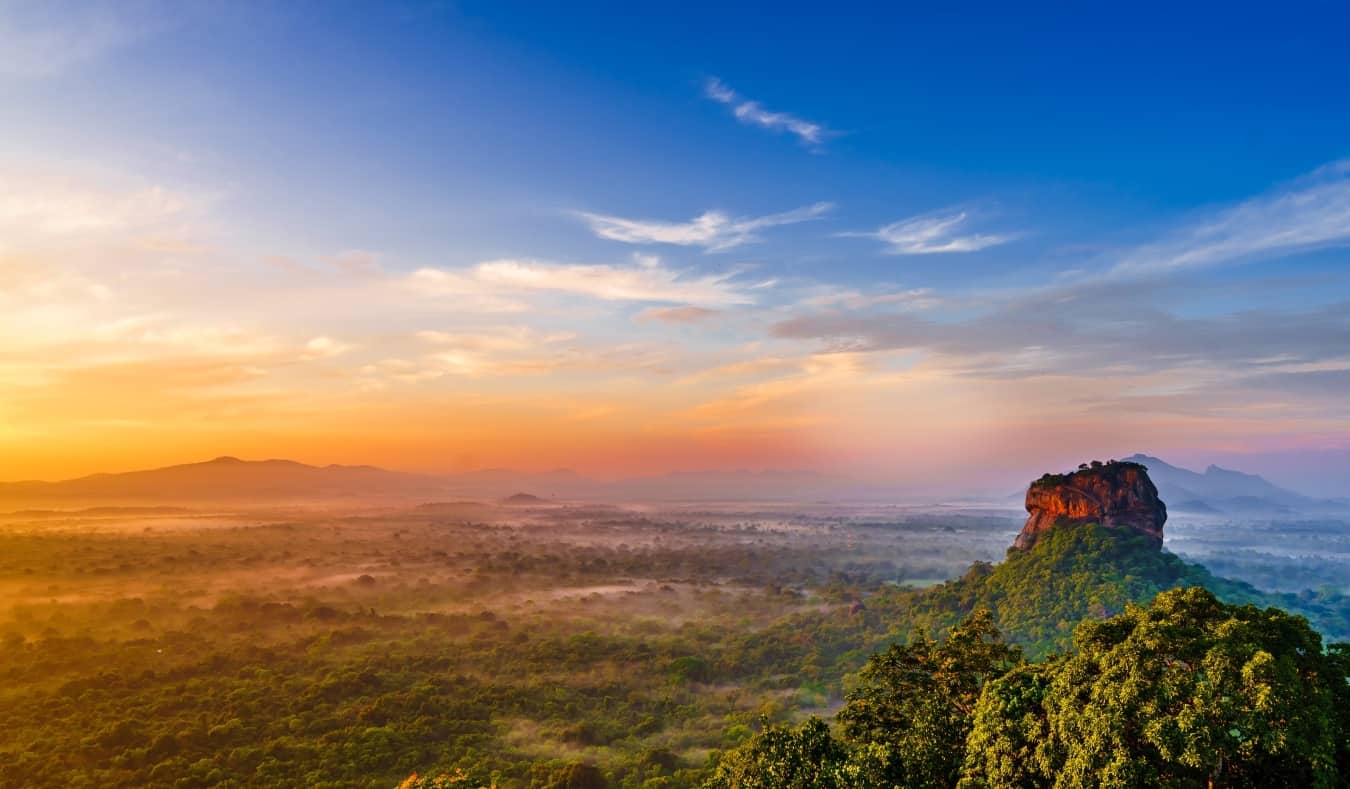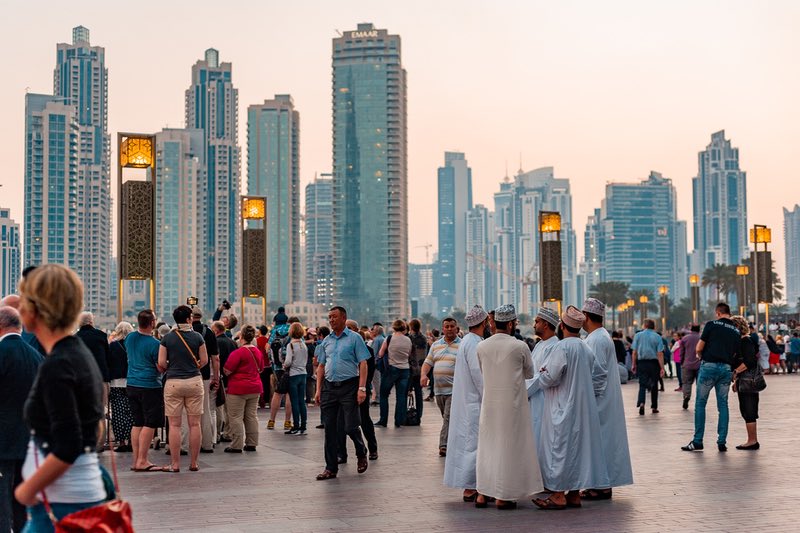A few years ago, I found myself embarking on a journey to Sri Lanka, a country I had heard about over the years but knew little about beyond a few surface-level facts. I knew it was once under British rule, that there had been a long conflict between the Tamils and Sinhalese, and that it’s famous for its tea and vibrant food scene. Its capital is Colombo, and it boasts incredible jungles and beaches. But my knowledge stopped there. I had no idea whether the country was cheap or expensive, what to see, where to go, how to get around, or even what the local currency was.
Sri Lanka, in short, was a blank slate.
As someone who loves traveling but believes in preparation, going in blind to a new country wasn’t an option for me. It’s a surefire way to get lost, overpay for things, misunderstand the culture, or even end up in an uncomfortable or unsafe situation. Knowledge, after all, is power, and in the digital age, there’s no excuse for being ill-prepared when so much information is readily available online. In my view, failing to do any research before a trip signals a lack of effort and, frankly, poor travel skills.
When I decided to visit Sri Lanka, I knew I needed to prepare properly. Normally, if I’m going to a place where I already have some understanding — maybe because I’ve been to neighboring countries or have friends who’ve been — I feel confident enough to just wing it. But Sri Lanka required a more diligent approach.
So, here’s what I did, and what you should consider doing, when traveling to a place you know little about:
1. Buy a Travel Guide
Despite the rise of blogs and online resources, I still firmly believe that guidebooks are essential for travelers. Even though the practical information like prices and schedules might be outdated, a good guidebook offers a solid foundation for planning your trip. It provides a broad overview of how to navigate the country, what sights are worth seeing, and even gives you some sample itineraries.
For my trip, I bought The Rough Guide to Sri Lanka. I’ve always enjoyed Rough Guides for their depth and detail, but I’m also a fan of Lonely Planet for its focus on budget travel. Flipping through a guidebook allows me to highlight key places of interest and helps me map out the big picture in a way that scrolling through blogs can’t. Plus, there’s something undeniably satisfying about physically holding a book as you plan your adventures.
2. Read Travel Blogs
While guidebooks provide a good starting point, they often lack the up-to-date and nuanced information that travel blogs can offer. Blogs are especially valuable for discovering hidden gems, the best places to eat, and honest insights from other travelers who’ve been to your destination recently. For Sri Lanka, I spent hours combing through travel blogs, searching for content that could give me a clearer sense of what to expect.
Here are a few blogs that helped me understand Sri Lanka better:
- The Cost of Travel in Sri Lanka
- A Budget Traveler’s Guide to Sri Lanka
- Sri Lanka Tips & Guide
Simply Googling for travel blogs about your destination will yield countless results, but if you’re looking for trusted sources, it’s worth compiling a list of your favorite travel blogs. These often provide more specific tips that you won’t find in guidebooks.
3. Ask Friends and Family for Advice
Once I had gathered information from my guidebook and various blogs, I turned to friends and family for more personalized advice. Luckily, I had a few friends who had been to Sri Lanka recently, and they were more than happy to share their experiences. Some even had family there, which proved invaluable. They connected me with locals who not only gave me tips on where to stay and eat but also offered to show me around once I arrived.
This step was key for me because nothing beats local knowledge. Having someone in-country who knows the lay of the land can dramatically enhance your travel experience. If you have friends or acquaintances who’ve been to your destination, don’t hesitate to ask them for recommendations — it could make all the difference in your trip.
4. Ask Fellow Travelers
Not everyone has a wide circle of friends or family who are well-traveled, but that’s where the power of the internet comes in. I often turn to online travel communities to ask for advice. Sites like Couchsurfing, Facebook travel groups, and even Reddit are great places to connect with fellow travelers who’ve been where you’re going. You can also post on your personal social media accounts — you’d be surprised how many people in your network might have valuable insights to share.
In my case, I leveraged the readership of my travel blog and social media platforms. After posting about my upcoming trip to Sri Lanka, I was flooded with helpful messages from readers who had been there. Some even offered to meet up with me in person. It was a fantastic way to build connections before I even set foot in the country.
5. Read Books on the Country’s History and Culture
To truly appreciate a place, I believe it’s essential to understand its history. Since I had a long flight ahead of me, I picked up a few books about Sri Lanka’s rich history and culture to read during my journey. This added context helped me make sense of the places I visited, as well as the current social and political dynamics of the country.
Here are some of the books I read:
- The Cage by Gordon Weiss
- Island of a Thousand Mirrors by Nayomi Munaweera
- Elephant Complex by John Gimlette
These books not only deepened my understanding of Sri Lanka but also made my experience more meaningful. Reading up on a country before visiting is a fantastic way to enrich your travels, and I always recommend picking up at least one or two books on your destination.
6. Learn About Safety
Traveling to an unfamiliar country always comes with a bit of uncertainty, and it’s important to be aware of any safety concerns before you go. This means researching common travel scams, understanding cultural norms (like dress codes), and getting a general sense of what areas are safe for tourists. It’s not about being paranoid; it’s about being prepared.
Some useful safety guides include:
- Is Southeast Asia Safe for Travelers?
- How to Stay Safe in Mexico as a Solo Female Traveler
- Is Central America Safe to Visit?
In addition to reading safety tips, I also recommend staying up-to-date on the latest travel advisories issued by your government. It’s always better to be informed than caught off-guard.
7. Get Travel Insurance
I never leave home without travel insurance, and neither should you. Whether it’s a stolen bag, a broken bone, or an unexpected flight cancellation, travel insurance is your safety net when things go wrong on the road. For Sri Lanka, I made sure to get comprehensive travel insurance that covered not only medical emergencies but also lost or stolen items.
Some posts to help you choose the right travel insurance include:
- How to Buy Travel Insurance
- The Best Travel Insurance Companies
- What Does Travel Insurance Actually Cover?
Final Thoughts
Visiting a country you know little about can be intimidating, especially if it’s in a region you’ve never traveled to before. Even after over a decade of traveling, I still feel a twinge of anxiety when I go somewhere completely new. But after doing my research, speaking with friends and locals, and reading about the country’s history, I felt more confident and excited for my trip to Sri Lanka.
Sri Lanka may not be “off the beaten path” for everyone, but it was for me. By taking the steps I’ve outlined above, I was able to turn a destination that initially felt like a blank slate into a vibrant, colorful adventure that I’ll never forget.
In the end, being an informed traveler isn’t about planning every detail of your trip. It’s about gaining enough knowledge to make the most of your experience and avoid unnecessary mistakes. Because, as I always say, a smart traveler is a better traveler.


